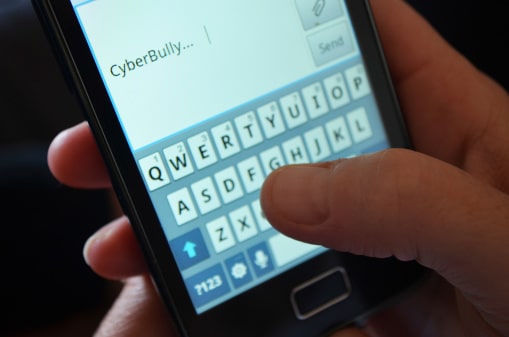Cyberbullying: Tips For Teens And Parents To Deal With It
Vaibhavi, a 15-year-old confident girl, who was quite known for her academic skills, got touched by the flamboyancy of social networking sites when she met a guy ‘Aditya’ online. Daily chit-chats paved a way for amiable friendship; until the unforeseen trouble of exams forced her to take a break from the cyber world.
Her sudden disappearance festered Aditya, and out of obsession, he started posting threatening warnings on her wall. Reviving back to the cyberspace, when Vaibhavi saw the slanderous matter posted on her wall, ‘the confident and valiant’ girl got shattered! Traumatized by the ill effects, she decided to escape!
Vaibhavi is not alone, as over and again news of cyberbullying has been creating terrible headlines in the present digital age. What is cyberbullying, and how can the promising young generation prevent it? Read on to know.
What is cyberbullying?

When a child, pre-teen, or an adolescent or even an adult, is tormented, threatened, harassed, humiliated, or otherwise targeted by anyone using the Internet, interactive, and digital technologies or mobile phones, it is called 'Cyberbullying'.
It is tarnishing threat as the Internet allows any information to spread quickly to hundreds and thousands of people. Cyberbullies can be classmates, online acquaintances, and even anonymous users, but most often they do know their victims.
Tips to handle it
As a teen:

If you are being bullied, remember:
- Don’t blame yourself. No matter what someone says or does, you should not be ashamed of who you are or what you did or feel.
- Do not respond. The bully wants to feel in control of your emotions, so the best response is - ‘no’ response.
- Block the 'bully' on your phone, IM list, websites, or social media pages.
- Don’t hesitate to report inappropriate messages or threats to your parent, teacher, or a trusted adult to seek help.
- Learn to de-stress. Channelize yourself to exercise, meditation, positive self-talk, muscle relaxation, etc. to manage the stress.
To prevent any anonymous cyber bully, prefer not to exchange pictures or share your private information with people you meet on the Internet.
As a parent:

Observe the following preventive measures:
- Inform your child about the device settings that allow blocking emails, IMs, or text messages from specific people.
- Limit the access to technology. Many kids who are bullied can't resist the temptation to check websites or phones to see if there are new messages. So don’t show any generosity with the timeline of using the Internet.
- Keep the computer in a common room in the house rather than the bedroom, to keep an eye.
- Know your kids' online world. Check their postings and the sites they visit and be aware of how they spend their time online. Talk to them about the importance of privacy and why it's a bad idea to share personal information online, even with friends. Encourage them to safeguard passwords.
- Keep yourself updated with the resource and support information about cyberbullying.
- Act supportive and friendly to inbuilt a safe and secure zone for your kids. This will make them feel secure and safe to discuss things with you without much hesitation.
Also, notice these warning signs to identify if your kid is being bullied:
- Signs of emotional distress during or after using the Internet or the phone
- Being very secretive or protective of their digital life
- Withdrawal from friends and activities
- Avoidance of school or group gatherings
- Slipping on their 'grades' and ‘acting out’ in anger at home
- Changes in mood, behavior, sleep, or appetite
How to manage a ‘Bully’ child?

If your kid is the one who is behaving inappropriately and bullying others, then:
- Talk to your child firmly about his/ her actions and make them understand that bullying can hurt people's feelings and lead them into serious troubles.
- Remind your child that the use of cell phones and computers is a privilege. Insist on strict parental controls on all devices and restrict the use until their behavior improves.
- Talk to teachers, guidance counselors, and other school officials to understand the matter and identify situations that may have led the kid to bully others.
- Consult a therapist, if your child has trouble managing anger, hurt, frustration, and other strong emotions.
For any queries related to emotional abuse and social media addiction, consult a Psychiatrist at www.healthcaremagic.com
Ask a Specialist
Recent Questions


